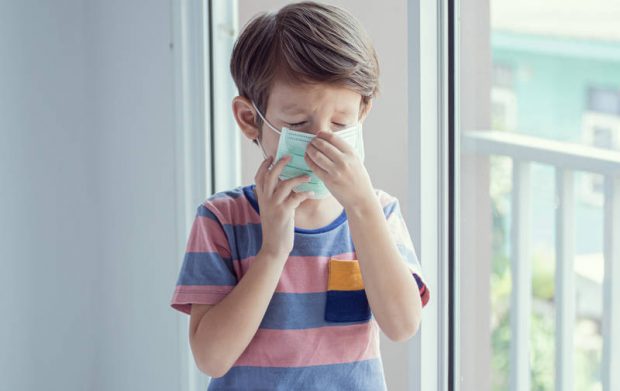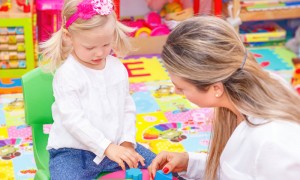Currently, most people in the U.S. are under stay-at-home orders as well as quarantines, which is due to the presence of the COVID 19 virus. As a parent, you’ve likely already experienced the difficulties of coping with this virus and the stresses that result from needing to stay at home all the time to avoid becoming infected.
The stresses and psychological impacts of this virus are also affecting children. After weeks of not being able to see their friends or play outside on a regular basis, your children may begin to be anxious and even angry about the situation. To make sure that your kids remain calm and free from anxiety, it’s important that you know how to talk to them about this virus.
How COVID 19 Is Affecting Children Psychologically
While it’s much easier for children to ignore the harsh realities in the world surrounding them, the Coronavirus has essentially halted the world to the point where children aren’t able to attend school, which means that they can’t see their friends as often as they want to. Substantial changes to the way that your child lives their life may cause them to start display feelings of anxiousness, anger, and frustration. These psychological symptoms develop in part because they don’t understand what’s going on around them.
There are many signs and symptoms that your child might display if their fears about the virus start to compound. These symptoms include:
- Being jumpy or easily startled
- Not being able to focus on what they’re doing
- Experiencing regular sleep disturbances like bed-wetting and nightmares
- Displaying fears of being separated from you
- Regular irritability or moodiness
- Physical symptoms like stomachaches and headaches
- New behavioral problems
If your child begins to display any of these symptoms, it’s important that you talk with them and attempt to ease their anxieties. Taking quick action can help your child avoid developing more severe mood symptoms and anxieties.
How to Talk to Your Children When They Have Anxiety Problems
If you and your children are required to quarantine yourselves in your home, there’s a good chance that your child will eventually start to become restless. When they focus too much on the news or the significant changes in their lives because of this virus, your child may experience some psychological symptoms. As a parent, it’s up to you to ease your child’s concerns and make sure that their anxiety levels are low. Here’s how to do that.
Know the Facts
If you want to effectively communicate with your child about this pandemic, it’s important that you know all of the facts. While the risk of infection is relatively high in the U.S., children have a very low risk of becoming infected by this virus. Even when they do, the symptoms are usually minor unless the child has an underlying condition or autoimmune disease. Knowing the facts of this virus can be very helpful when you’re communicating with your child and trying to ease their fears.
Listen to Your Child’s Concerns
If you find that your child is anxious about the Coronavirus pandemic, it’s important that you allow them to tell you about their concerns. Simply voicing their concerns may help your kid overcome their anxieties and fears about the virus. It’s essential that you don’t minimize the emotions that you’re child is displaying, which only serves to deepen the anxieties that they feel.
Make Sure Your Child Knows They Are Safe
The most important thing to do when talking to your kid about this virus is to let them know that they’re safe. Once they understand that the danger isn’t exactly imminent, you should sit down with your entire family to create a plan on how you’re going to remain safe. This plan should include washing hands numerous times throughout the day and avoiding contact with people when outside. With a proper plan in place, your child may feel less anxious.
Limit Exposure to News
Even though the Coronavirus is a very serious disease, the news always makes a situation seem even worse than it actually is. Watching the news consistently during these months will only serve to make your child depressed and even more anxious about what’s going to happen. Your child doesn’t need to be updated every day about new case and death counts pertaining to this virus, which is why it’s important that you keep them away from the news as best as you can.
Keep in mind that it may take more than one conversation for you to help your child calm down and reduce their anxieties. Helping your kids during this crisis means minimizing their fears whenever possible and making sure that the psychological effects of the virus don’t worsen. The aforementioned tips on how to speak with your kid about the virus should be a strong basis for future conversations.











No Comments